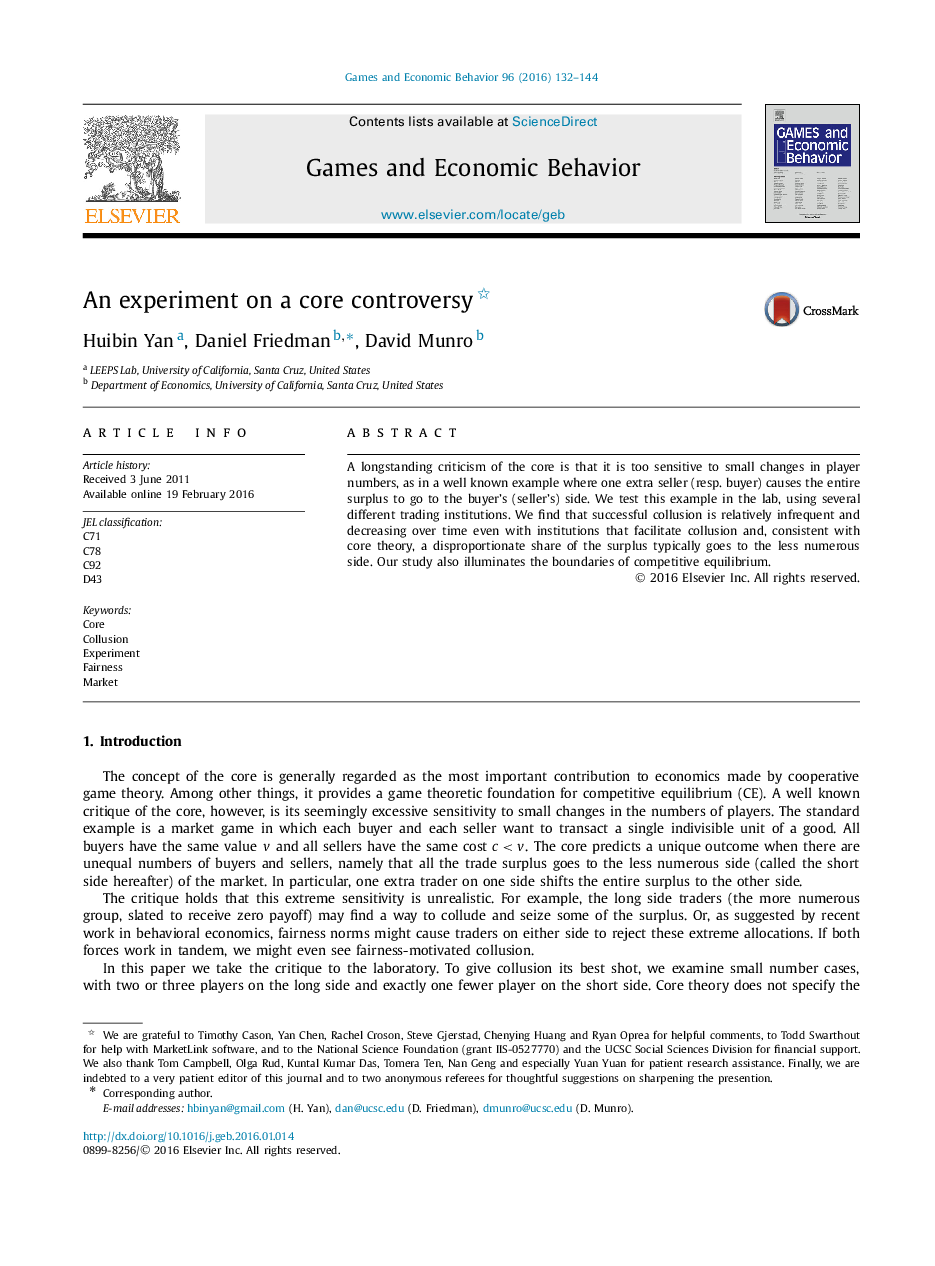| Article ID | Journal | Published Year | Pages | File Type |
|---|---|---|---|---|
| 5071497 | Games and Economic Behavior | 2016 | 13 Pages |
Abstract
A longstanding criticism of the core is that it is too sensitive to small changes in player numbers, as in a well known example where one extra seller (resp. buyer) causes the entire surplus to go to the buyer's (seller's) side. We test this example in the lab, using several different trading institutions. We find that successful collusion is relatively infrequent and decreasing over time even with institutions that facilitate collusion and, consistent with core theory, a disproportionate share of the surplus typically goes to the less numerous side. Our study also illuminates the boundaries of competitive equilibrium.
Related Topics
Social Sciences and Humanities
Economics, Econometrics and Finance
Economics and Econometrics
Authors
Huibin Yan, Daniel Friedman, David Munro,
